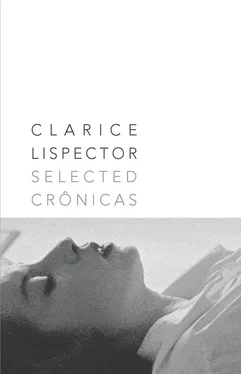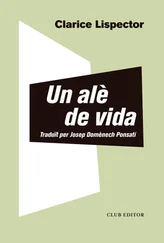This third story I am now about to tell is entitled The Statues. It opens with my complaint about the cockroaches. Then the same woman turns up. And so it goes on until I wake up at first light feeling drowsy and make my way to the kitchen. The pantry floor looks even more drowsy with its tiled perspective. And in the shadows of dawn, there is a purplish hue which distances everything. Looking down, I see blobs of white and shadows at my feet: a multitude of rigid statues scattered everywhere. Cockroaches which had petrified from the core outwards. Some are lying upside down. Others arrested in the midst of some movement which they will never complete. In the mouths of some of the cockroaches there are still traces of white powder. I am the first person to see dawn breaking over Pompeii. I know what this night has been. I am aware of the orgy enacted in the dark. The plaster of Paris must have hardened gradually in many of them as in some vital process, and the cockroaches, with increasingly painful movements, must have eagerly intensified the night’s frenzied pleasures as they tried to escape from their insides. Until they finally turned to stone with innocent terror and an expression, but such an expression, of sorrowful reproach. Others, suddenly assailed by their own core, unaware that their insides were turning to stone, suddenly crystallized like the truncated phrase: I love… Invoking the name of love in vain, the cockroaches sang on a summer’s night. While that cockroach over there, the one with its brown antennae powdered white, must have realized much too late that it had become mummified simply because it had not known how to use things with the spontaneous grace of the in vain: ‘Alas, I looked too closely inside myself! Alas, I looked too closely inside…’ From my impassive height as a human being, I witness a world’s destruction. Dawn breaks. Here and there, the stiff antennae of dead cockroaches quiver in the breeze. The cockerel from the previous story begins to crow.
The fourth story marks a new era in the house. The story begins in the usual fashion: I was complaining about the cockroaches. It continues up to the moment when I discover those statues made of plaster of Paris. Dead, of course. I glance at the pipes where this very night another swarm will appear, advancing slowly upwards in Indian file. Should I administer the lethal sugar night after night? Like someone who can no longer sleep without satisfying this craving for the nightly ritual. And should I spend my sleepless nights on the terrace? Eager to discover those statues my humid nights have erected? I trembled with perverse satisfaction at the vision of my dual existence as a sorceress. I also trembled at the sight of that hardening plaster of Paris, the depravity of existence which would shatter my inner form.
The cruel moment of choosing between two paths which I thought would divide, convinced that any choice would mean sacrificing either myself or my soul. I made my choice. And today I secretly wear the badge of virtue on my heart. ‘This apartment has been disinfected.’
The fifth story is called Leibnitz and the Transcendence of Love in Polynesia. It begins as follows: I was complaining about the cockroaches.
If I were to be asked about Ofélia and her parents, I should reply with decorous honesty: I scarcely knew them. Before the same jury I should testify: I scarcely know myself — and to each member of the jury I should say, with the same innocent look of someone who has hypnotized herself into obedience: I scarcely know you. But sometimes I wake from a long sleep and turn submissively towards the delicate abyss of disorder.
I am trying to speak about that family which disappeared years ago without leaving any traces in me, and of which all that remains is a faded and distant image. My sudden willingness to know was provoked today when a little chick appeared in the house. It was brought by a hand which wanted to have the pleasure of giving me some living thing. Upon releasing the chick from its box, its charm overwhelmed us. Tomorrow is Christmas Day, but the moment of silence I await all year came on the eve of Christ’s birth. Something chirping by itself arouses the most gentle curiosity which, beside a manger, becomes adoration. Well, whatever next, said my husband. He felt much too big and clumsy. Scruffy and with gaping mouths, the children approached. Feeling somewhat courageous, I gave in to feelings of happiness. As for the chick, it went on chirping. But tomorrow is Christmas, the older boy said self-consciously. We smiled, disarmed and curious.
But sentiments are like sudden water. Presently — just as water changes and loses some of its force when it attempts to devour a stone, and changes once more when we bathe our feet — presently there is no longer simply an aura and glow on our faces. Feeling good and anxious, we gathered round the distressed chick. Soft-heartedness leaves my husband cold and morose, something to which we have become accustomed; he tends to torment himself. For the children, who are much more serious, kindness is a passion. As for me, kindness inhibits me. Very soon the same water had changed, and we watched, ill at ease, entangled in our clumsiness as we struggled to be good. And now the water had changed, the expression on our faces gradually betrayed the burden of our desire, our hearts weighed down by a love which was no longer free. The chick’s fear of us also made us feel uncomfortable; there we were, and not one of us worthy of appearing before a chick; with every chirp it was driving us away. With each chirp, it was reducing us to helplessness. Its persistent terror accused us of thoughtless mirth which by now was no longer mirth, but annoyance. The chick’s moment had passed, and with increasing urgency it was expelling us without letting go. We adults quickly suppressed our feelings. But the children were silently indignant. They accused us of doing nothing for the chick or for humanity. The chick’s persistent chirping had already left us, the parents, uncomfortably resigned: such is life. Only we had never said so to the children, for we were ashamed; and we postponed indefinitely the moment when we should summon them and tell them straight that this is how things are. It became increasingly difficult, the silence grew, and they were slow to respond to our anxiety to give them love in return. If we had never discussed such things before, all the more reason why we should hide from them now the smile that came to our faces as we listened to the desperate squawks coming from that beak; a smile as if it were up to us to bless the fact that this is the way things are, and we had just given them our blessing.
As for the chick, it was chirping. Standing on the polished table, it dared not make a move as it chirped to itself. I never realized there could be so much terror inside a creature made only of feathers. Feathers covering what? Half a dozen fragile little bones put together for what purpose? To chirp terror. Mindful of our inability to understand each other and out of respect for the children’s revolt against us, we watched impatiently in silence. It was impossible to comfort the chick with words of reassurance, to console that tiny creature which was terrified just to have been born. How could we promise that everything would be all right? A father and a mother, we knew just how brief the chick’s life would be. The chick also knew, in the way that living creatures come to know; through profound fear.
Meanwhile, there was the chick with all its charm, an ephemeral, yellow thing. I also wanted the chick to experience the joys of life, just as we were expected to experience them, for its only joy was to make others happy. That the chick should feel it was superfluous, unwanted — one of the chicks is bound to be useless — and had only been born for the greater glory of God and, therefore, for the happiness of mankind. But in loving our dear little chick, did we wish it to be happy simply because we loved it? I also knew that only a mother determines birth, and ours was the love of those who take pleasure in loving; I rejoiced in the grace of having devoted myself to loving; bells, bells were pealing because I know how to adore. But the chick was trembling, a thing of terror rather than beauty.
Читать дальше












